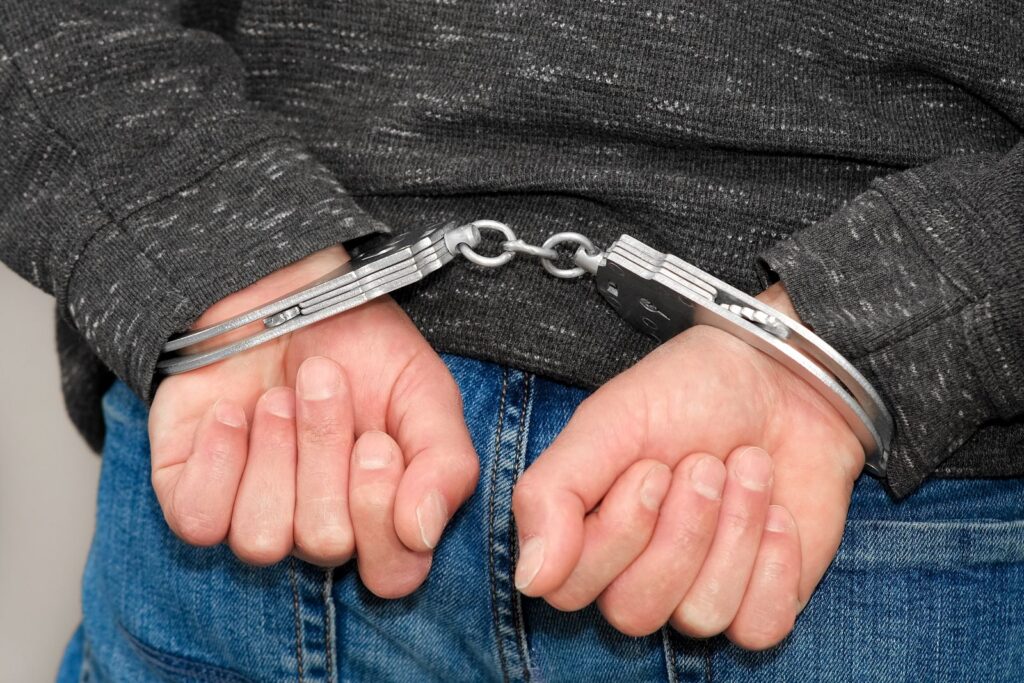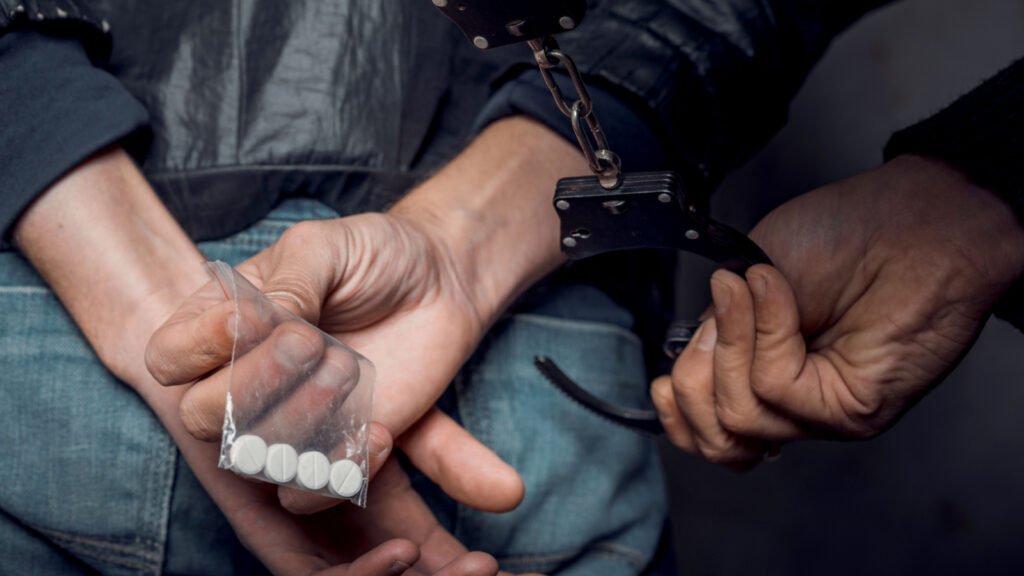Additional Links
- Missouri DWI/DUI Defense Attorney
- Should/Can I Refuse a Field Sobriety Test?
- Consequences of Refusing a Breathalyzer or Field Sobriety Test?
- What to Do if You Are Pulled Over for DWI in Missouri
- Building Your DWI/DUI Defense
- DWI Attorney: Top Mistakes DWI Defendants Make
- How Long Does a DWI/DUI Stay on My Driving Record in Missouri?
Types of DWI/DUI Field Sobriety Tests in Missouri
In Missouri, field sobriety tests are a crucial tool used by law enforcement to assess whether a driver is under the influence of alcohol or drugs. These tests are standardized by the National Highway Traffic Safety Administration (NHTSA) and are designed to evaluate a driver's physical and cognitive functions.
Field sobriety tests are not always reliable and can be challenged in court. Call (314) 900-HELP to start your DWI/DUI defense today.
The three primary field sobriety tests used in St. Louis include:
- Horizontal Gaze Nystagmus (HGN): This test measures the involuntary jerking of the eyes, known as nystagmus, which often becomes exaggerated when a person is intoxicated. During the HGN test, the officer will ask you to follow a moving object, such as a pen or flashlight, with your eyes. The officer is looking for three specific indicators in each eye: (1) lack of smooth pursuit, (2) distinct and sustained nystagmus at maximum deviation, and (3) the onset of nystagmus before 45 degrees. According to Missouri law, the results of this test can be a strong indicator of impairment, but it is not infallible and can be challenged in court if the test was not administered properly or if other factors, such as certain medical conditions, could have caused nystagmus.
- Walk and Turn (WAT): The Walk and Turn test is a divided attention test, which means it requires the driver to perform both physical and mental tasks simultaneously. In this test, the officer will instruct you to take nine steps, heel-to-toe, along a straight line, turn on one foot, and return in the same manner. The officer will observe for eight specific indicators of impairment, including (1) inability to maintain balance during instructions, (2) starting too soon, (3) stopping while walking, (4) failing to touch heel-to-toe, (5) stepping off the line, (6) using arms for balance, (7) making an improper turn, and (8) taking the incorrect number of steps. Missouri courts recognize the WAT test as a reliable indicator of impairment when administered correctly, but factors like uneven surfaces, improper footwear, or a medical condition can affect the results, which may provide grounds for challenging the validity of the test in court.
- One-Leg Stand (OLS): The One-Leg Stand test is another divided attention test. During this test, you will be instructed to stand with one foot approximately six inches off the ground and count aloud by thousands ("one thousand-one, one thousand-two, etc.") until told to put your foot down. The officer will time the test for 30 seconds and observe for four indicators: (1) swaying while balancing, (2) using arms to balance, (3) hopping to maintain balance, and (4) putting the foot down before the test is completed. Like the other tests, the OLS is subject to strict guidelines to ensure its reliability. However, factors such as weather conditions, the driver’s physical condition, and the surface where the test is performed can impact performance, making it possible to challenge the results in court if the conditions were not ideal.
In Missouri, the results of these field sobriety tests are often used as evidence of impairment in DWI/DUI cases. However, these tests are not foolproof, and various factors can influence the outcome. Like in any criminal case, the state must prove your guilty beyond a reasonable doubt. If you have been subjected to field sobriety tests, it is essential to have an experienced DWI/DUI attorney review the circumstances of your test to determine if the results can be challenged. At Combs Waterkotte, we have extensive experience in scrutinizing the administration and results of these tests, and we are dedicated to defending your rights.
Challenging Field Sobriety Tests in Missouri
Field sobriety tests are not infallible, and several factors, including the officer's subjective opinion, can affect their accuracy. In Missouri, challenging these tests involves questioning the conditions under which they were administered and the officer’s adherence to proper procedures. Here are some common grounds for challenging the validity of field sobriety tests in St. Louis:
- Improper Administration: Officers must follow specific protocols when administering field sobriety tests. Any deviation from these guidelines can render the test results unreliable. For example, failing to provide clear instructions, conducting the test on an uneven surface, or rushing through the process can all affect the outcome.
- Environmental Factors: External conditions such as poor lighting, uneven or slippery surfaces, adverse weather conditions, or nearby traffic can impact your performance on field sobriety tests. Missouri courts may consider these factors when determining the reliability of the test results.
- Physical and Medical Conditions: Certain medical conditions, physical disabilities, or even fatigue can mimic signs of intoxication, leading to false positives on field sobriety tests. Conditions such as inner ear disorders, neurological conditions, or injuries can all affect balance and coordination. In such cases, a defense attorney can argue that the test results do not accurately reflect impairment.
- Officer Bias and Interpretation: The interpretation of field sobriety tests is often subjective, and an officer’s bias can influence the results. An experienced attorney can examine the officer’s report and cross-examine them in court to highlight inconsistencies or biases in their assessment.
- Video Evidence: Patrol cars in St. Louis are equipped with dash cameras that record the administration of field sobriety tests. This video evidence can be crucial in challenging the officer's interpretation of your performance. If the video contradicts the officer’s report, it can significantly weaken the prosecution's case.
Challenging the results of field sobriety tests is a critical component of a strong DWI/DUI defense. At Combs Waterkotte, we thoroughly investigate every aspect of your arrest, including the administration of field sobriety tests, to identify any errors or inconsistencies. Our goal is to ensure that your rights are protected and to seek the best possible outcome in your case.
Your Rights During Field Sobriety Tests
In Missouri, it's important to understand your rights when you're asked to perform field sobriety tests during a DWI/DUI stop. Knowing these rights can impact the outcome of your case:
- Right to Refuse: You have the right to refuse field sobriety tests, though doing so may result in an automatic license suspension under Missouri's Implied Consent Law. However, this refusal cannot be used as direct evidence of guilt in court.
- Right to Legal Representation: While you may not have the immediate right to consult an attorney before performing field sobriety tests, you do have the right to legal representation after your arrest. It’s crucial to contact a lawyer as soon as possible to ensure your rights are protected.
- Right to Challenge the Tests: If you decide to take the tests, you have the right to challenge their validity in court. This includes questioning the conditions under which the tests were administered, the officer’s adherence to proper procedures, and the interpretation of your performance.
- Right to Remain Silent: You are not required to answer questions beyond providing basic identification information. Exercising your right to remain silent can prevent self-incrimination.
- Right to Review Evidence: You have the right to review any evidence used against you, including video footage of the field sobriety tests. This evidence can be critical in building a strong defense.
Understanding and asserting your rights during a DWI/DUI stop is essential to protecting yourself from unjust charges. At Combs Waterkotte, we are dedicated to defending your rights and ensuring you receive fair treatment throughout the legal process.

































